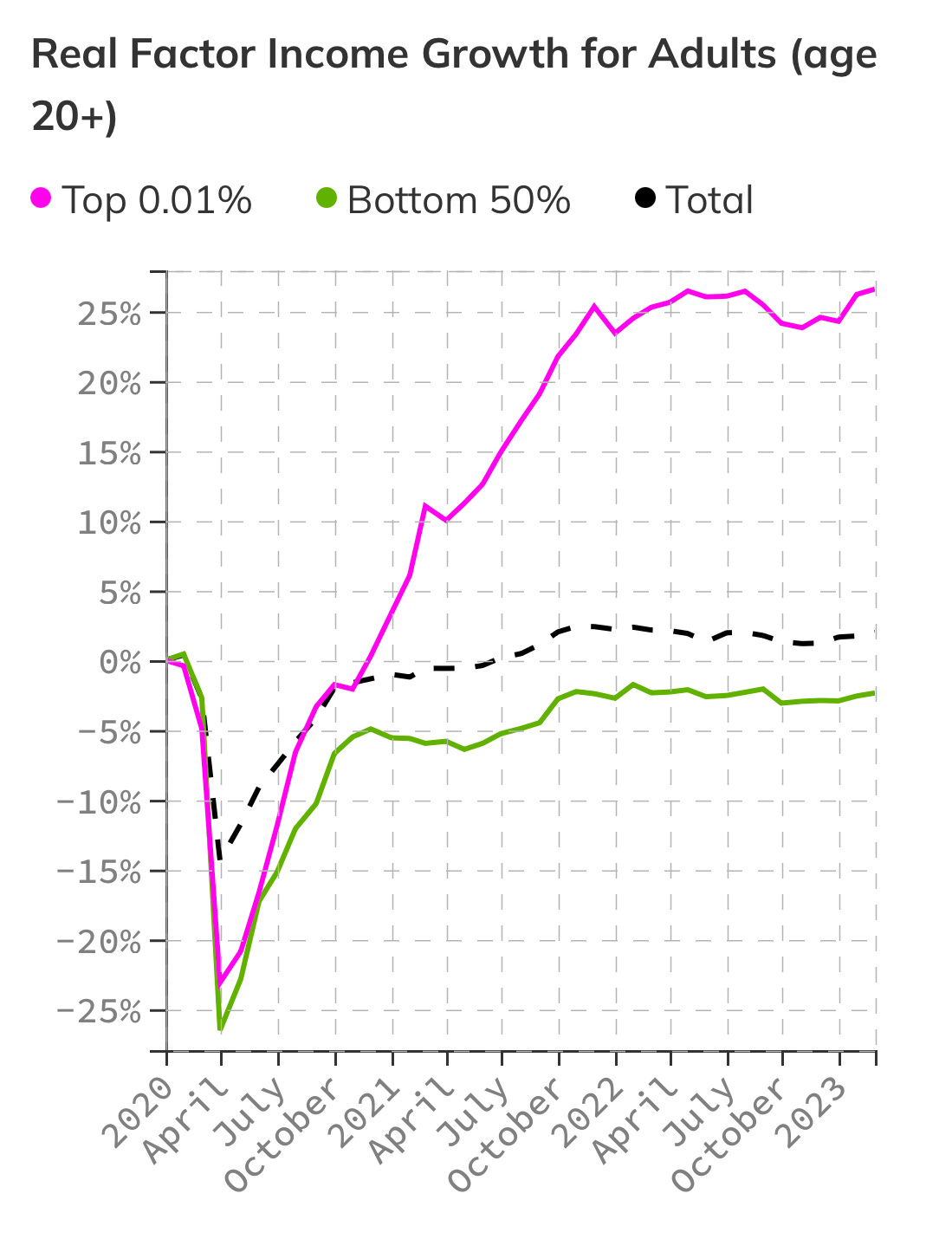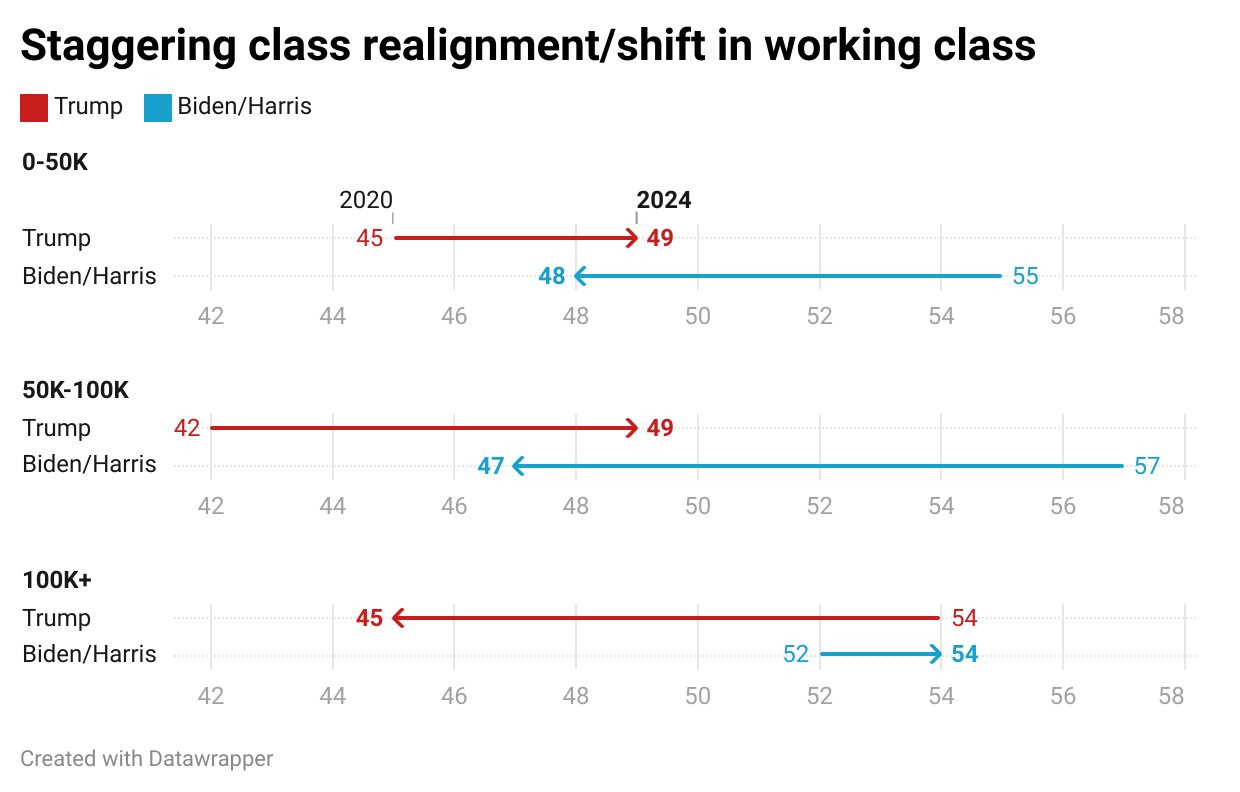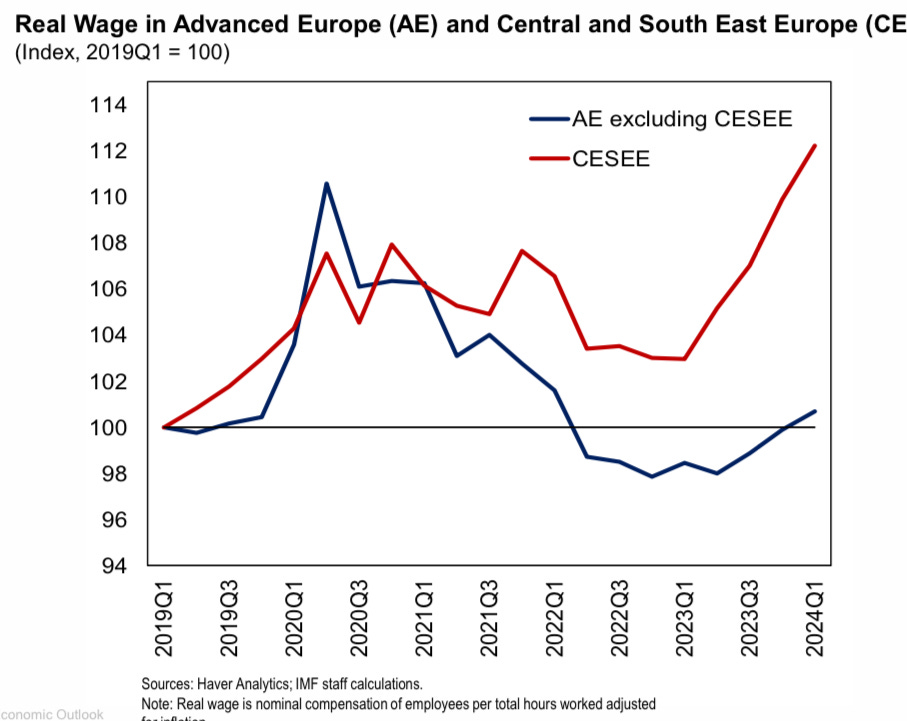Biden’s Lesson for Labour
As the dust settles on President Trump’s re-election, new warnings emerge for Labour: the political peril of wages that fail to rise.
As the dust settles on President Trump’s re-election so new warnings emerge for Labour. And as it happens, it’s an old story: ‘the economy, stupid’ and the political risk of wages that fail to rise fast enough. Which is what the OBR is forecasting for this parliament.
On the key issue of the economy, President Trump was ahead of first President Biden, and then most recently Vice President Harris for much of the last year, and much of the last few weeks. Indeed, Trump was 6-14 points ahead on economy throughout the campaign.
That shouldn’t surprise us. Although American economic growth has outpaced the G7, the reality is that real wage growth in America, after inflation, has been lacklustre for a while. And while the top 0.01% have done extremely well, the bottom 50%, bluntly, have not. According to realtimeinequality, by mid 2023, real factor income was below the level of 2020.
Even when we look at US real median incomes (as Simon Wren Lewis points out) while we can see a recovery between 2014 and 2019, by 2023, households are only back to the level they were in 2019.
These dynamics might help explain what the Washington Post noted was a pretty substantial class realignment in American politics. While Harris improved on Biden’s vote amongst those earning over $100K, Harris lost the vote amongst those earning $50-100K, and amongst votes under $50K too.
This story is in fact common to advanced economies in Europe. Below is the IMF’s data for advanced economies in Europe. It is only in the first quarter of the year, that real wages have recovered to where they were in the first quarter of 2019. That might help explain why populists did so well over the course of the European elections.
Now here’s the omen for Labour.
Labour’s budget was an essential turn of the corner for our economy. In place of the failed economic strategy of the Conservatives that have delivered flat lining living standards, low growth and sky high debt, Rachel Reeves set out a new path towards a higher investment economy.
There is much debate in the OBR’s assumptions published alongside this budget - for example, the OBR’s assumption that growth will dissipate in later years, or that private investment will not be crowded in by public investment - but most ominous is the OBR’s projection that, like Biden’s America, real wages will not be rising much in the years immediately ahead of the next election.
That underlines the simple point that not withstanding improvements in the real living wage and the employment rights bill, Labour will need strategies to spread the gains of growth if we’ve to check, halt and reverse the onward march of the populists like Reform.











